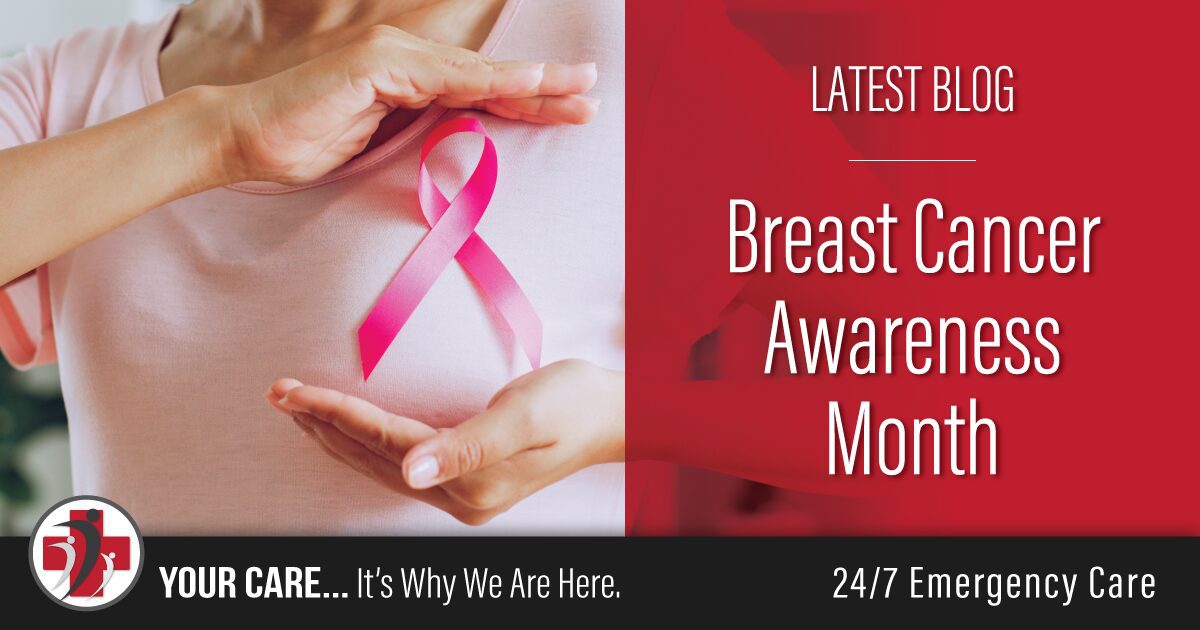Breast Cancer Awareness Month

You’ve seen the pink ribbon reminders, have watchedawareness-raising commercials on the television, and have maybe even participated in a fundraising walk. While Breast Cancer Awareness Month, occurring every October, raises a lot of public awareness, there remains a steep battle to fight in the world of breast cancer prevention and treatment. While mentally acknowledging breast cancer awareness is important, it’s not enough. We encourage our patients to support education about breast cancer, and be proactive about taking steps toward early detection in themselves and loved ones.
Breast cancer is one of the most prevalent and life-threatening diseases affecting people worldwide. It’s estimated that in 2023, almost 297,800 women and almost 3,000 men will be diagnosed with invasive breast cancer. This year, an estimated 43,700 women will die from this disease. One in eight women will be diagnosed with breast cancer in her lifetime.
While these statistics are indeed dire, there is hope. When breast cancer is detected in its early stages, the 5-year survival rate is an impressive 99%.
Is it possible to lower your risk for developing breast cancer?
While there are no guaranteed methods to prevent breast cancer entirely, there are some steps you can take to help reduce your risk.
-
Get checked regularly
Mammograms are one of those usually non-urgent routine appointments that are easy to procrastinate. However, it’s important to follow recommended mammogram screening guidelines. For women over the age of 40, or those with a family history of breast cancer, mammograms are essential for early detection.
-
And check yourself regularly
Speaking of things that people procrastinate . . . many of our patients report that they do not complete breast self-examinations on a regular basis because they simply forget. Consider setting a monthly reminder on your phone calendar, and reward yourself when you complete your check. Another idea is to rope in a friend or family member to act as a self-check accountability partner, reminding each other every month; this way you’re helping yourself and your loved one. If you notice any lumps, changes, or dimpling, it’s time to consult your FHMC medical professional.
-
Know the risks you can’t control
If you have a family history of breast cancer, you have a higher chance of being diagnosed yourself. Other risk factors that you don’t have control over include having dense breasts, history of receiving radiation therapy for medical treatment, having started your period earlier than average in life or experiencing a late menopause, and having a personal history of breast cancer. If you have any of these risks, talk with your healthcare provider about scheduling more frequent screenings.
-
Take control of the risks you can control
Not being physically active, taking certain hormone replacements during menopause, drinking more alcoholmore often than what is recommended, and being overweight after menopause can all raise your risk for a breast cancer diagnosis. Talk with your healthcare professional about ways you can implement positive lifestyle changes to lower your chances of developing this disease.
-
Schedule routine medical checkups
Making regular appointments at Fountain Hills Medical Center can help you stay as healthy as possible. Our medical staff can provide clinical breast exams, conductscreening for risk factors, offer customized care based on your risk profile, and provide timely disease treatment if the need arises.
Breast Cancer Awareness Month helps to remind us of the severity of this disease, and the importance of making choices to lower your own risk. It’s thanks to the high-profile awareness of this disease that there are fewer late-stage diagnoses, and more people are taking personal steps towards prevention. There is still much work to do to reduce the impact of breast cancer in women’s lives, but taking control of your health and wellbeing is a positive first step.
SOURCES:

